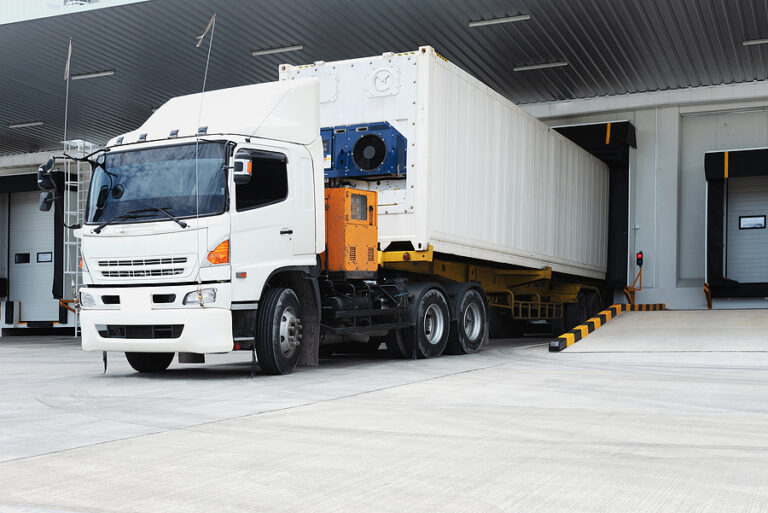Shelley Austin, President and Co-Founder INTEC Cargo & Logistics
Highlights:
- Sustainability is essential for consumer trust. Consumers are increasingly appreciating brands that prioritize sustainable practices, including how they transport their food.
- Transporting food presents unique challenges. Because food is perishable, it requires special handling and transportation methods to ensure quality and minimize waste.
- Intermodal transport, efficient route planning and freight consolidation can reduce emissions. These strategies offer practical ways to increase the sustainability of food transportation while maintaining efficiency and cost-effectiveness.
As the United States moves toward a greener, more transparent business environment, companies in every industry are feeling the pressure of sustainability regulations. Food production is 26% of global greenhouse gas emissionsTherefore, it is the responsibility of industry leaders to try to reduce their environmental impact wherever possible.
Sustainable practices are no longer a “nice to have” but an expectation from consumers who want to be confident in the sustainability credentials of the companies they buy from. Companies that don’t make a demonstrable effort to implement sustainable practices risk becoming outdated as other companies adapt to this changing landscape.
Many in the food industry are eager to reduce their carbon footprint, but face unique challenges and complexities in their supply chains. Like most products, food and beverage supply chains are susceptible to external disruptions, but the perishable and time-sensitive nature of these goods means that issues can lead to even greater losses and shortages.
Navigating this complex set of requirements while striving to reduce emissions can be challenging, but companies can take important steps to make their supply chains more sustainable without limiting efficiency or incurring undue additional costs.
Introduction of intermodal transport
Intermodal transport uses rail for long-distance shipments and trucks for short-distance shipments to move freight without handling the product inside. Intermodal transport has a much lower environmental impact than other modes of transport such as road or air freight, and offers reliable delivery times. Refrigerated options are also available. One intermodal train can transport the same amount of goods as 280 trucks, which reduces emissions by taking trucks off the road and eases traffic congestion. As a result, intermodal transport reduces carbon emissions. 60% compared to truck transportIt is highly effective for environmental sustainability.
Temperature-controlled intermodal Temperature-controlled shipping, along with other temperature control options, is suitable for refrigerated and frozen goods, as well as goods that require higher temperatures. It can maintain the temperature needed to ensure product integrity and freshness. By choosing intermodal shipping for a variety of food and beverage shipments when timings are flexible, companies can enjoy environmental benefits.
Intermodal reduces shipping costs by 15% to 18% It is environmentally friendly and cost-effective compared to trucking options along the same freight routes.
Plan efficiently and optimize your routes
Effective planning helps to minimise your carbon footprint by evaluating all the transport options and routes available for your product. Efficient planning helps to identify the most sustainable delivery method and ensures your product reaches its destination on time. This helps to avoid the risk of having to use an expedited delivery service at the last moment, which can be more emitting, when delivery requirements could have been met via a different route if planned more efficiently.
Route optimization ensures that food and beverage shipments are transported along the most fuel-efficient routes, taking into account both distance and congestion avoidance.
Cargo Consolidation
It is also important to look for opportunities for integration. Consolidate multiple smaller shipments into one larger shipment. Specialist food and beverage cargo consolidators can consolidate your shipments for loading into containers and trailers, avoiding wasted space and the energy consumed by containers that aren’t full. This helps save you money in addition to reducing your carbon footprint.
Considering these steps can help reduce your carbon footprint without sacrificing efficiency and cost. Navigating complex supply chains and planning complex itineraries can be difficult, so outsourcing is a great option. Outsourcing logistics to a third party makes it much easier to plan an itinerary that is both cost-effective and energy-efficient. Finding a partner with strong sustainability credentials, such as EPA SmartWay certification, and experience implementing sustainability practices can put you on the right path towards sustainability.
It is important to prioritize sustainability as it will not only increase business success but also drive greater consumer engagement by incorporating it into your core supply chain strategy.
 Shelley Austin: INTEC Cargo & Logistics. she With over 25 years of industry experience, Shelli is a recognized leader in the freight forwarding and logistics space, specializing in third party logistics (3PL) and intermodal transportation. Managing InTek’s operations team, Shelli works directly with customers and partners on creative solutions to their supply chain challenges. With a background as a shipper, Shelli has a broad view of all aspects of freight forwarding and logistics needs.
Shelley Austin: INTEC Cargo & Logistics. she With over 25 years of industry experience, Shelli is a recognized leader in the freight forwarding and logistics space, specializing in third party logistics (3PL) and intermodal transportation. Managing InTek’s operations team, Shelli works directly with customers and partners on creative solutions to their supply chain challenges. With a background as a shipper, Shelli has a broad view of all aspects of freight forwarding and logistics needs.



